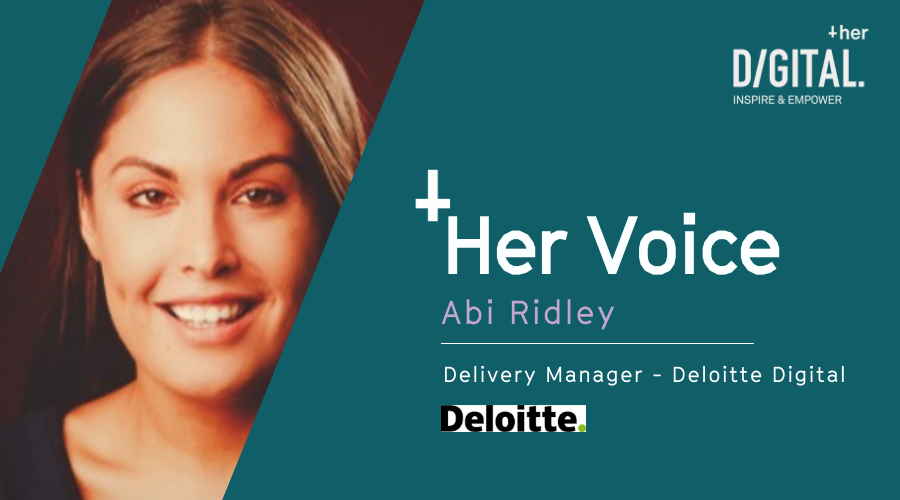
We chatted with Abi Ridley, Delivery Manager at Deloitte, to learn more about her journey into tech which began with a scholarship from the Royal Geographical Society.
Tell me about your journey into working in the digital and tech industry.
Before university, I received a scholarship from the Royal Geographical Society to undertake a ‘challenging expedition or research project which furthers knowledge of the planet, its cultures, peoples and environments.’ I used this grant to spend time in a women’s empowerment centre in Delhi and it was there that I developed a passion for societal impact and technology. The women were selling handmade items at local markets, and we began to sell them online using social networking and increased their revenue which in turn had a positive impact on the centre.
Receiving my scholarship came with the caveat that I studied Geography at University upon my return. After university, I was adamant I wanted to join a graduate scheme and received places on the food buying graduate programmes at M&S and Tesco’s. I’d applied to the Accenture – Client Delivery graduate programme at the same time, out of curiosity more than anything as it spoke to my passion for tech and a passion for being able to positively impact society.
I’m grateful to now work in digital, in the public sector. This allows me to continue my passion for using tech to create a positive impact on society.
What challenges have you found along the way? And how have you overcome them?
It’s difficult to be the only female at the table, from a non-tech background (having studied Geography not code!). It took me years to overcome the ‘not techie’ complex I was carrying. With lots of learning, courses and taking opportunities to ask questions and listen, I’ve realised that I may not be a developer, but I can understand what is going on and be part of the conversation. I had to build my confidence to do this.
What is your favourite thing about being part of the industry?
I love being able to see the impact of the work I am delivering. I am currently working on a project that will be used by millions across the UK. I love that I am part of something that can be used by my friends and family and can improve the way people do things in the UK.
Why do you think it’s important, especially within the digital and tech industries that programmes such as Digital Her support the future generation?
It is important to showcase all the opportunities within tech and encourage females to apply for roles, even if they don’t feel like they hit every tick box on the job requirements, but to push themselves for opportunities and give it a go anyway.
What could the industry do better to encourage and support women to join the sector and stay within the sector?
Shouting about role models within the digital sector is so important. Those who are mums, those who work flexibly, those who have joined the sector from ‘non-tech’ backgrounds and many more examples. It’s important to shine a light on the vast range of roles within tech and all the different ways you can make them work for you whilst still prioritising other areas of your life.
